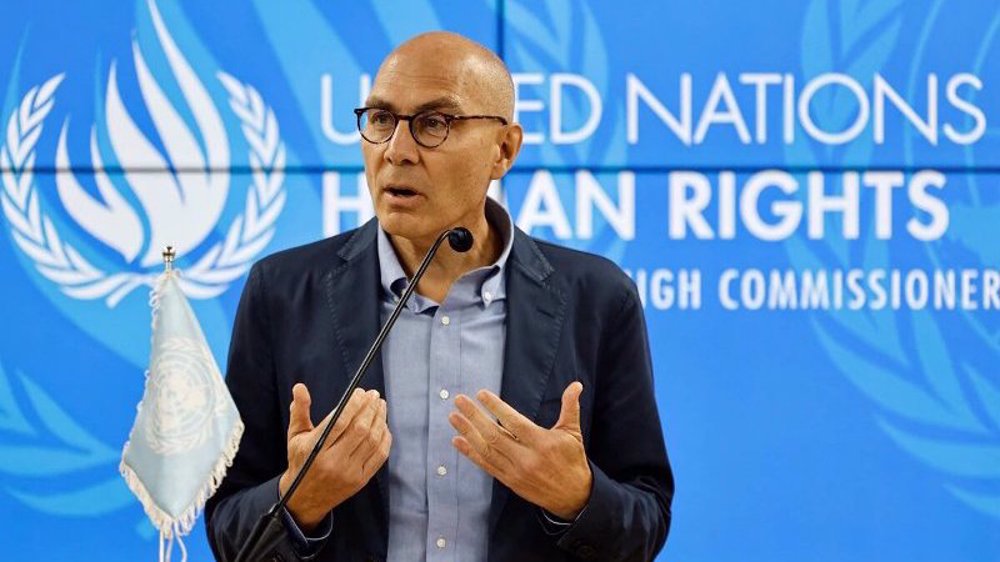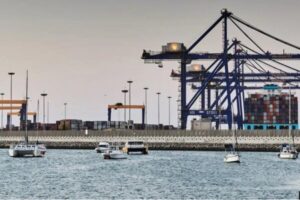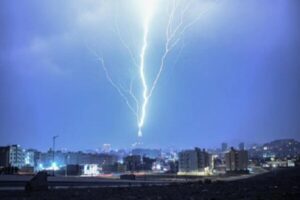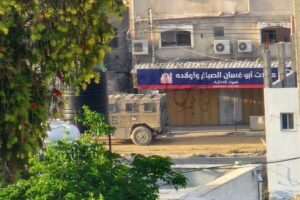The United Nations human rights chief has warned that Israel’s collective punishment of Palestinian civilians in the war-torn Gaza Strip “amounts to a war crime,” as the Tel Aviv regime continues its deadly bombing campaign in the besieged Palestinian enclave.
After a Wednesday visit to the Rafah crossing, the sole crossing point between Egypt and Gaza, Volker Turk, the UN High Commissioner for Human Rights, said Israeli bombardments have killed, maimed and injured in particular women and children in Gaza.
“The collective punishment by Israel of Palestinian civilians amounts also to a war crime, as does the unlawful forcible evacuation of civilians,” he said, amid his five-day visit to the Middle East.
The war started after the territory’s resistance movements waged a surprise attack on October 7 against the occupying entity, dubbed Operation Al-Aqsa Storm, in response to its decades-long crimes against Palestinians.
“The latest death toll from the Gaza Ministry of Health is in excess of 10,500 people, including over 4,300 children and 2,800 women. All of this has an unbearable toll on civilians,” Turk further said, warning, “We have fallen off a precipice. This cannot continue.”
For weeks, Israel has been violently pounding almost all areas and facilities of the blockaded territory, including hospitals, schools and residential buildings, rejecting all calls for a ceasefire in the region.
Elsewhere in his remarks, the UN human rights chief demanded respect for international human rights laws and international humanitarian laws, noting that “parties to the conflict have the obligation to take constant care to spare the civilian population and civilian objects.”
“Attacks against medical facilities, medical personnel and the wounded and sick are prohibited,” Turk stressed, warning that there is an “urgent humanitarian imperative to reach the population increasingly isolated” in Gaza.
According to officials in the Gaza Strip, the occupying regime’s aggression has so far destroyed 70 percent of the coastal sliver’s electricity grid.
Israel’s airstrikes, missile attacks and shelling not only destroy hospitals, homes, and houses of worship, but also cut off fuel, electricity and water supplies.
“Blackouts have serious consequences on rescue workers struggling to find and rescue the victims of strikes, families trying to find out the status of their loved ones and to access emergency medical care, and for the situation on the ground to be monitored and documented,” Turk stressed.
The Rafah crossing, according to Turk, is a “lifeline” for 2.3 million inhabitants of the tightly-blockaded Gaza Strip. Although a trickle of aid trucks has been allowed in recently, they are just a fraction of the aid that used to be allowed.
“The lifeline has been unjustly, outrageously thin. In Rafah, I have witnessed the gates to a living nightmare,” the UN human rights chief said.
In this nightmare, “people have been suffocating, under persistent bombardment, mourning their families, struggling for water, for food, for electricity and fuel. My colleagues are among those trapped, and among those who have lost family members, suffering sleepless nights filled with agony, anguish and despair,” Turk added.
He also strongly called for a ceasefire to end the Israeli aggression.
On Monday, UN Secretary-General Antonio Guterres said the war was turning the coastal sliver into “a graveyard for children.”
The UN chief said clear violations of international humanitarian law were being committed during the war, adding that the Israeli regime was simultaneously targeting “civilians, hospitals, refugee camps, mosques, churches, and UN facilities – including shelters. No one is safe.”




